This interview was the cover story for CADENCE Magazine
Vol. 29 No.2 February 2003
Interview by V. Lo Conte
Lately you have played with Milford Graves at the Vision Festival, I would like to ask you about this set. Do you think you both will record together?
I hope so. Realistically, I have no idea. I am rather superstitious when it comes to talking about a project before it develops on it’s own.
What do you like in his playing? I suppose his drumming melds with your music in a different way than the drums of Sawyer.
I like Milford’s SOUND. The sound he gets out of drums, oh man! . . . you know the accents.
And with Cecil Taylor? How does his music influence yours?
I don’t know. But I’ll tell you something man. I don’t listen to many CD’s but I listen to CT just as much as I listen to Trane and I listen to Coltrane a lot.
Usually guitar players listen to their fellow mates. What do you listen to in Coltrane and Taylor?
When I listen to their music, I just listen. You know, just to experience the musical journey. In the past when I actually had time to study someone’s work, I crawled inside the speaker to really get the essence of their sound, energy, the stories that are explored, the mood, color or emotions that are expressed.
And about guitar players? I suppose some of them blew your mind and let you choice this instrument.
Oh yeah, early on everything was guitar.
Some names? Jimi Hendrix was among your favourites? Or Miles Davis in his electric period?
I didn’t hear Bitches Brew until I was 15. When I was a kid I listened to AM radio. My favorite station was WABC out of New York City. Everywhere I went I took a radio. At that time one would hear Sly and the Family Stone, Curtis Mayfield, War, Stevie Wonder, Simon and Garfunkle, Aretha Franklin, Gladys Knight, Booker T and the MG’s, The Isley Brothers, Marvin Gaye, Ike and Tina Turner, Spinners. All of those bands had great guitar parts and tunes a kid loves to sing along with. Wes Montgomery always seemed to be around too. When I was very young I heard his music. One of my neighbors sat out on his front porch and played along with Wes’ records. Mesmerized, I would watch him for an hour or so everyday during the summer.
When I got older some relatives gave me rock records and guitar magazines. Some of my friends had older brothers and sisters who lent me their records and thats how I got into Miles. This all coincided with reading about John McLaughlin in a Jeff Beck interview. Beck was so fantastic to me. He seemed to move in all types of directions and his phrases were bluesy with all kinds of other sounds too. BB King was someone I listened to a lot also. His rhythm section was so slick and BB’s lines just seemed to tell stories. Hendrix’s hits were always on the radio and after I saw some concert film’s of him on TV, I freaked out and got all of his records. When I was a kid I used to play many of his songs. I really dug his lesser known tunes. There were many other guitarists who were influential. Of course there were the usual suspects – Duane Allman, Eric Clapton, Jimmy Page – these were all the guys on FM radio. I got into those guys as a teenager. A lot of the local bands I played in as a teenager featured that music. All of that music was fun but I was really into Wes and Joe Pass by the time I was 15 and I spent a lot of time trying to learn to play like them.
But your sound is completely original. How did you get it? Did you find it just so, just playing with your trio with Brunka and Sawyer?
For as long as I have been playing, my guitar sound has been in a perpetual state of evolution. It just comes from playing. For the most part its tactile, my connection and my response to the guitar. The tools of course are important. The Fender Stratocaster I use has a rock maple neck which is a dense and resonant wood. The D’Addario strings are a heavy gauge. The first string is a .018. This provides a lot of mass with the vibration. The Mesa Boogie Mark 4 amplifier has a transparent sound which helps to produce a 3 dimensional image. It might even have more dimensions than that!
You have two records on CIMP, and your sound comes out quite good, it doesn`t sound like it has been once again fixed in the mix. Can you tell us about the two records?
The recurring theme in my music is self-realization. For me Music is a healing force. I am involved with issues that inform the musical moment: historical awareness, urban context and music’s role in defining the relationship between subjective perception and objective reality. Above all, the scope of my work points toward a fundemental unity of musical forms and the history of ideas. This is the history of the present. Throughout my twenties there was a dynamic exchange between my inner and outer world. During my thirties I refined my approach to playing the guitar to create a music of pure fluid movement through open space, unencumbered by walls, roofs and interior enclosures, so to speak; the underpinnings of traditional jazz form.
Multi-faceted, shimmering, semi-transparent. Innovative design. The Music is a blend of lyrical structural expression and formal nuances. The Music is about defying gravity. In some ways it’s ethereal. The ethereal aspects of Music include: vibration, resonance, breathing, magic. The magic lies in giving value to that which is usually despised. After a while I realized a lot of the material that is NOT being explored. So I began to take the forsaken material and give it value. Vision rather than subject matter becomes supreme. A search for truth. Not a single truth. Folded planes. Non-straightforward, the hybrid, the deranged. The Music is about escaping gravity and heaviness without losing touch with the ground. Music that lifts into the metaphysical realm. The ether of magic. Music against the disengaged. There is a cultural dimension and a metaphoric dimension which vigorously stirs emotions. Music is always on shifting ground. It is best when it expresses a synthesis of emotions and ideas.
Musicians try to pin down ideas that are energetic in the cultural atmosphere, chief among them, perhaps, the evolving relationship of self to community in a modern democracy. Guidelines in music equals a roadmap to mediocrity. My aesthetic is as much urban as it is musical. A poetry of circulation. Music is an object of desire where cultures intertwine. Great Music breaks rules.
The CD’s I have recorded are about the battle Music wages for the soul’s transformation amid the din of life. The duality of the existence in the abyss: reality versus fantasy, music versus thought, rules versus emotions, the body’s limits and ones imagination and only at one point do these elements unite. We triumph by finding the strength to be euphoric. This is the quest for that feeling.



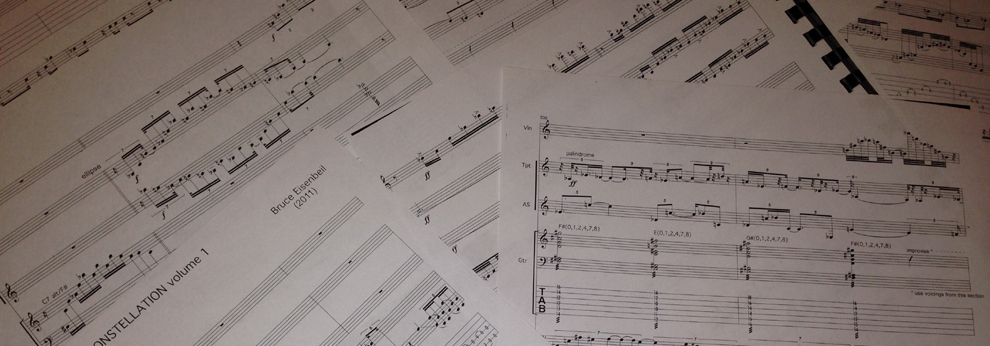

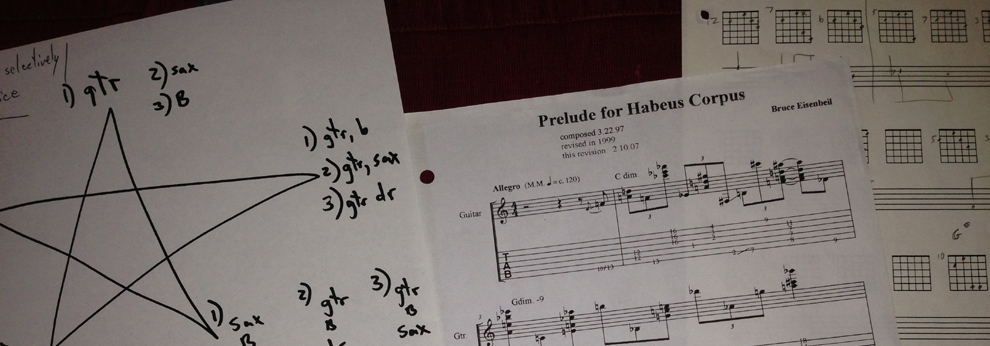
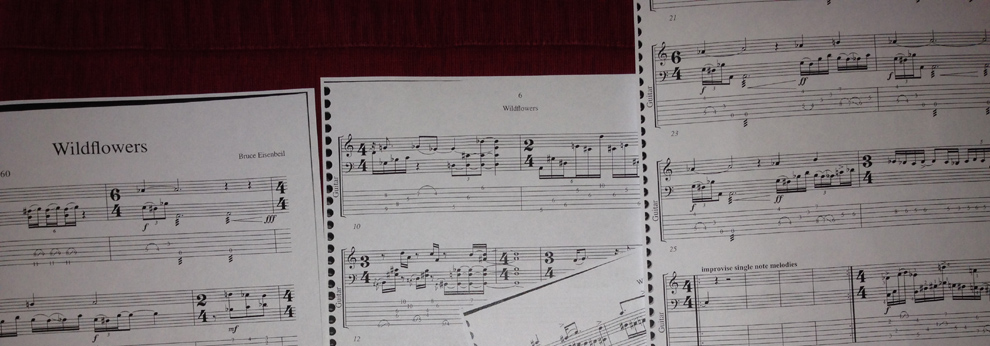








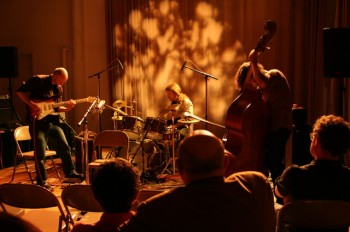
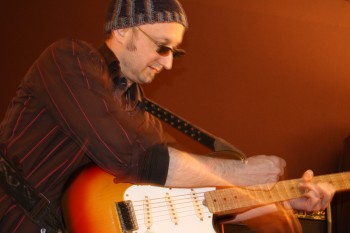
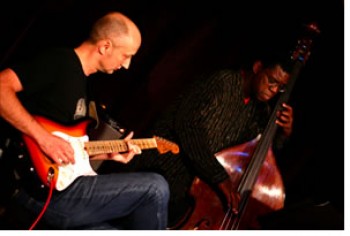
Social Profiles